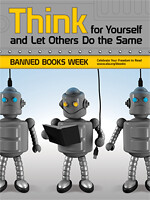The fantastic story of the eccentric scientist who unlocked the mysteries of the middle kingdom.
Simon Winchester
Harper Collins
ISBN 978-0-06-088459-8
Chances are that you have heard that the Chinese invented gunpowder, printing and spaghetti. The reason we know these things, along with a myriad of other facts about the contributions of China to science, technology and philosophy is that a British biochemist, a fellow of Caius College at Cambridge, went to China in 1943 on a diplomatic mission: to aid the various colleges and universities in China which had been displaced by the Japanese occupation of much of coastal eastern China.
Joseph Needham collected thousands of books, manuscripts letters, paintings and other artifacts related to the history of Chinese technological development over the course of centuries. He spent four years in China, traveling, visiting and interviewing Chinese scholars, ordering books and materials to be flown "over the hump" (over the Himalayas in U.S. Military aircraft) to aid their research, trying to learn what contributions China had made to civilization and asking what has become known as "Needham's question": why did it stop? |
With China now on the verge of becoming the world's new economic engine it might seem silly to think that China's contributions to civilization had ever stopped, but at the time Needham visited China the general (western) understanding was that China had stagnated since about the fifteenth century. This may be entire illusory, an artifact of western hubris or it may be a temporary lull in the relentless ant hill march of Chinese progress.
Needham spent the rest of his life writing his magnum opus, the multi-volume "Science and Civilisation in China" in which he details all of the thousands of technological, scientific and philosophical firsts for which China is due credit.
But Needham was far from being just a grind. He dabbled in Bolshevism, nudism, polyamory and liberal Christianity. He was a fonding director of UNESCO. He became entangled in a genine communist plot: perpetrated by communist China during the Korean war, to falsy accuse the United States of sing biological warfare. He learned to read and to speak Manderin from his mistress, Lu Gwei-djen, who lived just a couple of doors up the street from Needham and his wife for decades, traveled to China to join Needham there during his mission and worked with Needham on his huge book project. Needham's wife, Dorothy did also. The two women got along together famously.
I think there's another book in that.










This book sounds very similar to the chinese historical that I am finishing right now. "Return to Middle Kingdom" is a wonderful NF. War, revolution, politics, intrigue, adventure and romance, this book has everything a reader might want.
ReplyDeleteThanks for the heads up on a possible next read.